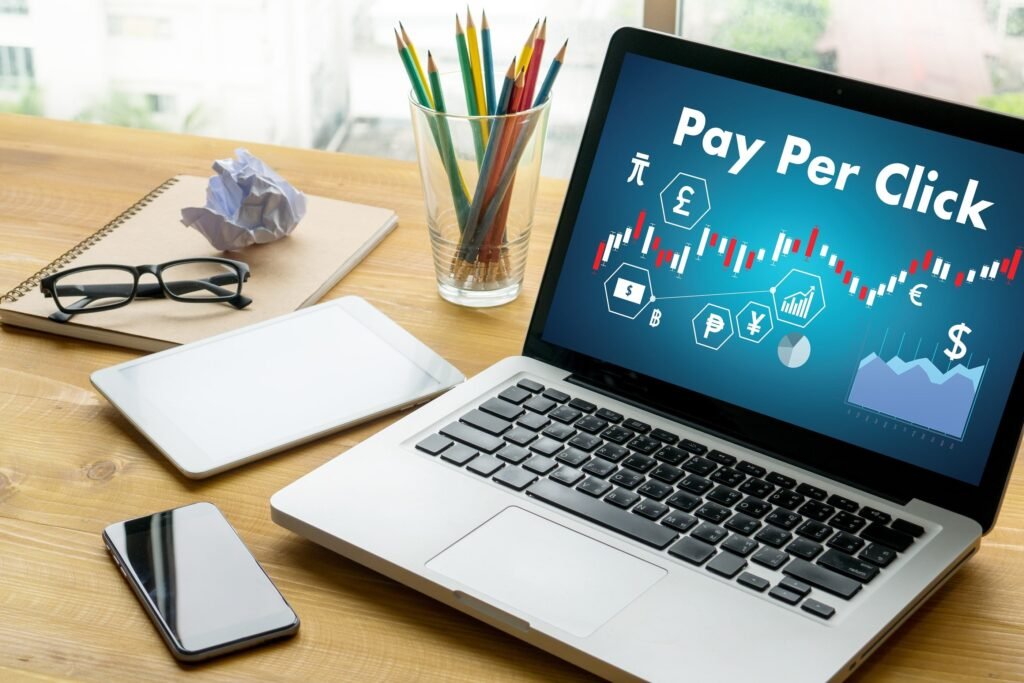The digital landscape has transformed how organisations connect with audiences, promote their offerings, and build trust. Among the most effective tools in this space are Search Engine Optimisation (SEO) and Pay-Per-Click Advertising (PPC). These services sit at the heart of digital marketing, helping brands enhance visibility, generate traffic, and drive meaningful results.
Although distinct in method, SEO and PPC often work together in digital marketing to create a balanced and comprehensive strategy. This article explores their core services, how they differ, and why they remain vital for success in the modern digital world.
Understanding SEO
Search Engine Optimisation (SEO) is the practice of optimising websites so they appear higher in search engine results pages (SERPs). The main goal is to increase organic traffic – visitors who arrive through unpaid search listings.
SEO is considered a long-term investment: results take time but can bring consistent visibility once achieved.
Core SEO Services
-
Keyword Research
Identifying terms and queries people use when searching for specific products, services, or information. Effective keyword research balances volume, intent, and competition. -
On-Page Optimisation
Adjusting content, meta titles, descriptions, headings, and URLs to align with both user needs and search engine requirements. -
Technical SEO
Ensuring a site is crawlable and indexable, with attention to speed, mobile responsiveness, security (HTTPS), and structured data. -
Content Strategy
Developing high-quality blogs, guides, landing pages, and multimedia content that answers questions and builds authority. -
Link Building
Earning credible backlinks from trusted sites signals authority and improves rankings. -
Local SEO
Optimising for region-specific searches, particularly important for businesses targeting a local audience. -
Analytics and Reporting
Tracking performance through tools such as Google Analytics and Search Console to measure traffic, rankings, and conversions.
Understanding PPC
Pay-Per-Click Advertising (PPC) is a model where advertisers pay each time someone clicks on their ad. Unlike SEO, PPC guarantees immediate visibility by placing ads prominently on search results pages or across digital platforms.
The most common example is Google Ads, though PPC extends to Bing, LinkedIn, Facebook, Instagram, and other platforms.
Core PPC Services
-
Campaign Strategy
Defining objectives, budgets, and target audiences before launching an ad campaign. -
Keyword Targeting
Selecting keywords that align with search intent, ensuring ads appear when users are most likely to engage. -
Ad Creation
Crafting compelling ad copy, visuals, and landing pages designed to maximise clicks and conversions. -
Bid Management
Adjusting keyword bids and budgets to ensure ads remain competitive without overspending. -
Audience Segmentation
Narrowing audiences by location, age, demographics, behaviours, and interests to reach the right users. -
Remarketing
Targeting users who have previously visited a site but did not convert, helping keep the brand top of mind. -
Performance Analysis
Tracking key metrics such as impressions, clicks, cost per click (CPC), and conversions, then refining campaigns in real time.
SEO vs PPC: The Key Differences
Though both aim to improve online visibility, they operate differently:
-
Cost Structure – SEO focuses on unpaid results, while PPC requires paying for each click.
-
Speed of Results – SEO takes time to build authority, while PPC delivers immediate visibility.
-
Sustainability – SEO builds long-term presence, whereas PPC stops as soon as spend is paused.
-
User Trust – Many users place more trust in organic listings than ads, though PPC secures prominent placement.
Neither is inherently better – the right choice depends on goals, timelines, and resources.
How SEO and PPC Complement Each Other
When integrated, SEO and PPC create a more powerful digital marketing strategy:
-
Double Visibility
Brands can appear in both organic and paid results, increasing their chances of clicks. -
Keyword Insights
PPC provides instant performance data that can inform SEO strategies. -
Remarketing
SEO brings in first-time visitors, while PPC helps re-engage them if they leave without converting. -
Testing and Refinement
PPC campaigns can test messaging and landing pages quickly before investing in long-term SEO-driven content. -
Brand Authority
Appearing in both paid and organic listings strengthens credibility and trust.
Benefits of SEO Services
-
Long-term visibility and traffic growth.
-
Greater return on investment once rankings are achieved.
-
Builds brand authority and trust.
-
Captures audiences at different stages of the decision-making process.
Benefits of PPC Services
-
Instant exposure in search results.
-
Detailed targeting based on demographics and behaviours.
-
Flexible budget control and campaign adjustments.
-
Highly measurable results, with clear performance metrics.
-
Ability to support seasonal campaigns or product launches.
Challenges of SEO and PPC
Both services come with challenges that require ongoing management:
-
SEO Challenges – Results take time, search algorithms change frequently, and competition can be intense.
-
PPC Challenges – Campaigns can become costly in competitive industries, and performance depends heavily on targeting and optimisation.
When to Use SEO vs PPC
-
SEO suits: long-term brand building, content marketing, and businesses looking for consistent organic traffic.
-
PPC suits: short-term campaigns, new product launches, or competitive niches where organic ranking is difficult.
In practice, most successful strategies use both together – SEO for sustainable growth and PPC for instant results.
The Future of SEO and PPC
As digital behaviour evolves, so do these services:
-
SEO Trends – Voice search, AI-driven results, E-E-A-T principles (Experience, Expertise, Authoritativeness, Trustworthiness), and mobile-first indexing.
-
PPC Trends – Automated bidding, AI optimisation, integration with social commerce, and more personalised ad targeting.
Together, they will continue to adapt and play central roles in digital strategies.
Conclusion
SEO and PPC represent two of the most effective digital services available today. SEO builds organic visibility and long-term authority, while PPC delivers instant, targeted exposure.
Individually, each has strengths and limitations, but when combined, they provide a balanced and results-driven approach to online marketing. For organisations aiming to succeed in the fast-moving digital world, investing in both ensures maximum visibility, better audience engagement, and stronger performance over time. Visit now:
| https://code-desk.com/services/top-digital-marketing-agency-uk/ |







